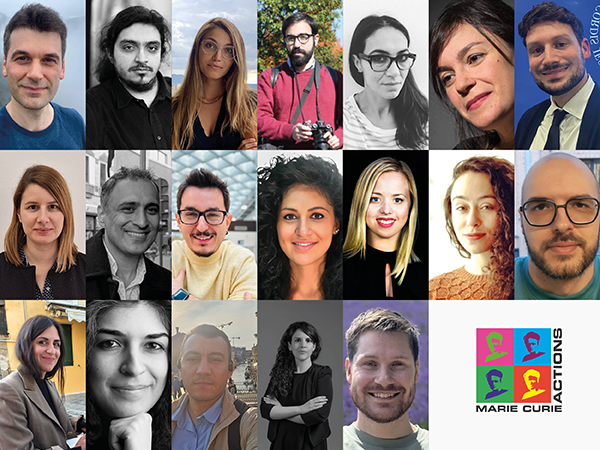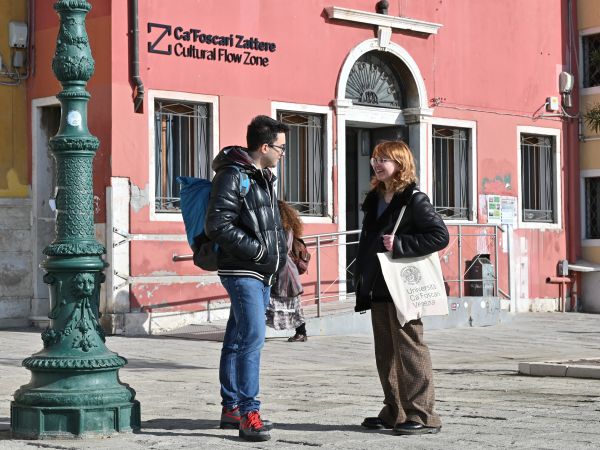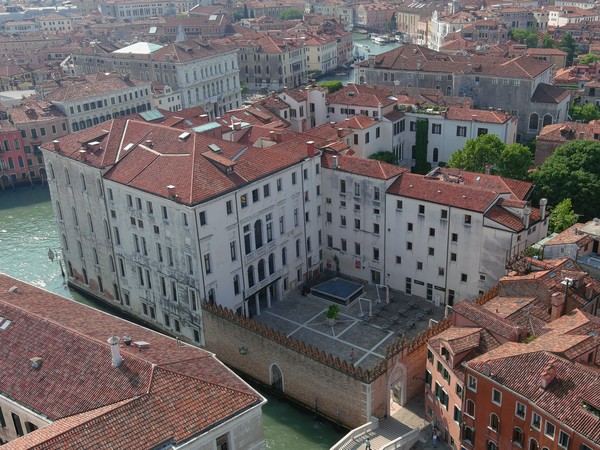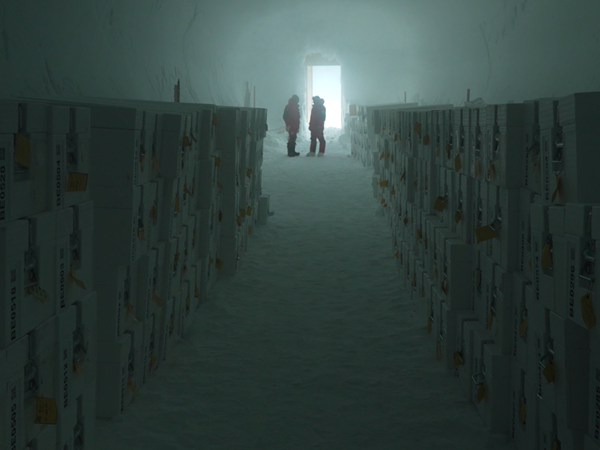The Future of Syria: Beyond Sanctions to the Hurdles of Reconstruction – 'Marie Curie' Fellow Antea Enna’s Multidimensional View
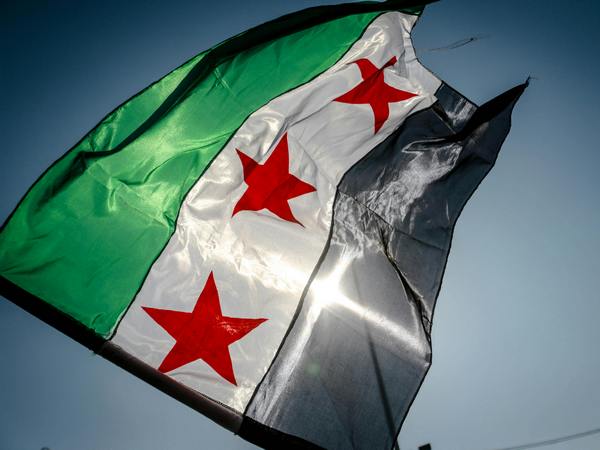
On 14 May, Donald Trump announced the potential lifting of economic sanctions against Syria, followed by a similar decision from the European Union. Immediately afterwards, he met Ahmed al-Sharaa (al-Julani), the post-Assad Syrian leader with a militant jihadist past, in Saudi Arabia.
This shift in US foreign policy towards Syria follows nearly fourteen years of civil war and fifty years of Assad family rule. Bashar Al-Assad, the last of the dynasty, departed the country last December aboard the presidential plane, just days after an offensive led by the jihadist group Hayat Tahrir al-Sham, which currently holds power in Damascus.
But is the civil war in Syria truly over? Is the change at the top, along with everything that has occurred so swiftly after years of conflict and sanctions, the result of an internal revolution or a political and economic scheme orchestrated elsewhere?
We discussed this with Antea Enna, a scholar of conflict dynamics in the Levant and a Marie Curie fellow at Ca' Foscari University and the Centre for Strategic Studies (CSS) at the University of Jordan, who is working on the AMIN_MENA project supervised by Professor Matteo Legrenzi.
"The meeting between Trump and interim president Ahmed al-Sharaa is very significant, and like the conflict in Syria, it needs to be understood in a multidimensional way. The economic sanctions against Assad's Syria, which have been in place and were intensified in 2019 with the Caesar Act, have severely affected the population and the country, bringing foreign investment to a minimal level. Until recently, these restrictive measures represented the biggest obstacle to the reconstruction of the 'new' Syria. The suspension serves as a strong political message to the new administration, and it also conveys an economic message to donors, not just those from Europe or America, but also from the Gulf countries. It is no coincidence that Trump met Ahmad al-Sharaa in Riyadh, the capital of Saudi Arabia.
To understand the context, we need to begin by examining the Syrian crisis from a historical perspective. This conflict transcended an internal civil war and entailed significant geopolitical interests, both regional and international. The rapid decline of the Assads was met with considerable enthusiasm, both within and outside Syria; however, this enthusiasm has since diminished. We have undoubtedly witnessed a monumental change that has led to substantial regional imbalance, prompting us to ask several questions. Who stands to benefit from the new Syrian political trajectory? What scenarios might emerge in the future? One initial answer can be found in Trump's lifting of sanctions and in how the self-proclaimed Syrian government will navigate the situation, now that economic pressures have eased. The current situation in the region and in Syria remains highly unstable and should be analysed through a territorial and multidimensional lens. Crucial aspects to watch in Syria include the processes of reconstruction and the return of refugees, both of which carry national and regional implications.”
How is the regional context evolving?
To understand the Syrian situation, we must consider a broader territorial context. Syria's neighbouring countries are experiencing significant changes that directly affect regional stability. Many of the "coincidences" we observe are not random; instead, they reflect evolving geopolitical dynamics.
Lebanon is undergoing a complex period of readjustment due to the end of the conflict between Israel and Hezbollah, continuous Israeli violations of the ceasefire, and the establishment of a new president and government. Assad's withdrawal coincides with a period of change and adaptation for Hezbollah, particularly on a military level – a crucial factor for power balances and the axis of resistance. Clashes on the Syrian-Lebanese border in March, along with recent interceptions and seizures by Syrian authorities of weapons shipments from Syria destined for Lebanon, suggest a shift in Syrian policy towards the axis of resistance and beyond. Indeed, this attitude could hold deeper significance regarding the new Syrian administration's stance on the Palestinian cause. Jordan adopts a cautious and observant approach towards Syria, reflecting its traditional balanced regional policy. In Turkey, a historically influential player in Syrian affairs with significant interests in the north of the country, the Kurdistan Workers' Party (PKK) has recently disbanded. Its Syrian counterpart, however, remains active and potentially strengthened, particularly in the east of the country. The role this movement will play in Syria's future is an open and highly relevant question that certainly needs to be closely monitored. The new Syrian government has not yet publicly commented on Israel's statements regarding the Golan Heights – occupied since 1967 – or Mount Hermon, nor on Israeli army operations in the south of the country. Despite informal talks in recent days about a non-aggression agreement between the two countries, the IDF recently conducted an air strike on the coastal city of Latakia, followed by Israeli statements asserting their intention to maintain freedom of action to eliminate any potential threat to the state of Israel.
Will there be elections in Syria?
At present, the promise is that elections will be called in five years. As of now, Ahmad al-Sharaa is the new de facto leader and has formed a government; however, I would remain very cautious in asserting that the conflict in Syria has ceased. Internal security remains precarious, as evidenced by the violence that has occurred in numerous areas of the country against Alawites, Christians, and Shiites. This is a primary reason why many refugees are not yet returning and do not plan to return to the country.
Syria is an interesting country from both a political and economic perspective. Considering its geostrategic position, internal changes do not remain isolated but inevitably spread and influence neighbouring countries. To understand today's Syria and potential future developments, it is necessary to adopt the perspective provided by area studies, which focuses not only on one dimension but on multiple aspects, including the analysis of historical and current realities and dynamics, as well as national and regional socio-economic considerations.
Assad's pre-war Syria represented a unique case in the region, observed with both interest and suspicion by its neighbours. It was a stable and advanced country, a bulwark of a regional policy supporting the Palestinian cause, and its socialist state system provided free and accessible education and healthcare for all. In my field research with Syrian refugees, they always enthusiastically described their country in terms of access to free services, while also mentioning the limitations of a political system like the one perpetuated by the Assads.
As researchers and scholars, and beyond, there are many questions we must ask ourselves to understand exactly how Syria will be configured in the coming years. How will Syria navigate a complex and constantly evolving Middle Eastern chessboard, where interests are numerous and the stakes are incredibly high? Will the Syria of the future partially reflect or completely distance itself from the Ba'athist policies implemented by the Assads? Will a capitalist model be adopted? What social policies will be promoted (education, healthcare, services)? How will reconstruction be managed, and how will the return of refugees be organised and supported? Will there be a reconciliation process?
What will the millions of Syrians living abroad do now?
Here is another topic we need to address more comprehensively. In host countries – Turkey, Jordan, and Lebanon – international aid has significantly decreased in recent years due to funds being diverted to the war in Ukraine and donor fatigue from continuously supporting a crisis that has dragged on for years. These countries cannot bear the economic burden of the high number of refugees they "host", and not being part of the Geneva Convention, they do not have genuine asylum policies but rely on the UNHCR for crisis management. However, they must respect the principle of non-refoulement, which prohibits states from returning refugees to countries where their lives or liberties are at risk. Lebanon and Turkey have forcibly or coercively repatriated Syrian refugees in recent years. Jordan has coordinated few forced repatriations, but since 2017, in line with its traditional policy, it has been more cautious and has halted this practice. These countries have every interest in seeing refugees return, but there is no official UNHCR indication authorising repatriations; currently, only voluntary returns are permitted and facilitated. The situation remains unclear, and claiming that there are actual policies to support the return of thousands and millions of people is premature.
Regarding the return of refugees from an internal perspective, the new Damascus government will have to manage and make decisions on difficult yet vital issues such as the problem of housing and property, the path of social reconciliation after years of war, internal migration, security, and services that will support both those returning from abroad and the internally displaced. Those currently residing in neighbouring countries and contemplating a return wonder whether their children will be able to attend school and what services they will encounter upon their return to Syria. The decision to return is a personal and family choice, and therefore involves multiple factors, primarily security, along with the individual's or family's willingness to embrace an uncertain and volatile situation like the one we observe today. Many Syrian refugees I recently interviewed for my research described the question of return as a complex decision, as they understand their current situation as refugees but are uncertain about what they will encounter upon returning to their city or country of origin. This uncertainty causes them considerable distress. Furthermore, there is not yet an international bureaucratic mechanism capable of supporting those who choose to return.
It is also important to note that, from a humanitarian perspective, Syria is a lucrative market. Local and international organisations with information and a presence on the ground do not collaborate because they are in competition: those with a more extensive presence and greater information are likely to monopolise aid and, consequently, receive more funding. This situation could create operational deficiencies in the future, preventing aid from reaching needy populations or vulnerable targets, and leading to a distorted understanding of needs in certain areas of the country.
What is al-Julani's next challenge?
Who will be entrusted with the country's reconstruction? The suspension of sanctions is not unconditional. On this point, too, we must ask ourselves: What will Syria provide to the United States in return? American expectations are unlikely to align with those of the Syrian people, who are enduring extreme hardship. Furthermore, historically, the United States has shown no interest in a strong and stable Syria. A destabilised Syria allows for greater control over the Middle Eastern region, both for the United States and for its allies, local and otherwise.
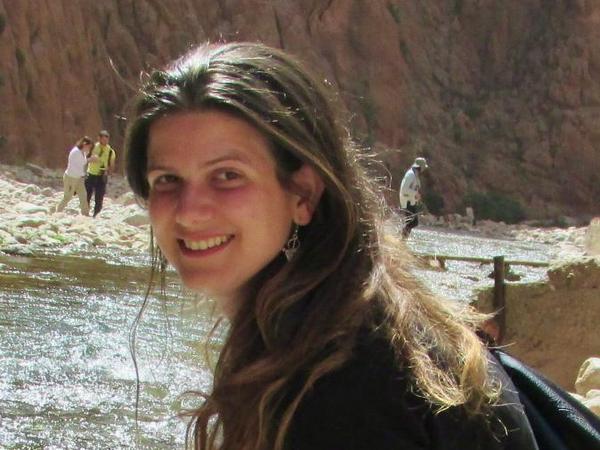
Antea Enna is an associate researcher at the French Institute of the Near East (IFPO) in Beirut, in the Department of Contemporary Studies. She recently received a Marie Curie post-doctoral fellowship at Ca' Foscari University and will visit the Centre for Strategic Studies at the University of Jordan, the Issam Fares Institute at the American University of Beirut, and the University of Essex during the outgoing phase. Dr. Enna received her PhD in Institutions and Policies from Università Cattolica in Milan, where she researched conflict risk reduction in Lebanon amid the Syrian refugee crisis. Following her PhD, she worked as a consultant in the MENA region, conducting research for organisations such as the UN and the EU, and collaborating with local ministries and NGOs. Her research interests encompass the impact of the 2024 war on political and social violence in Lebanon, along with social stability and cohesion in Lebanon and Jordan, as well as issues related to inequalities, social policies, and the repatriation of Syrian refugees.






